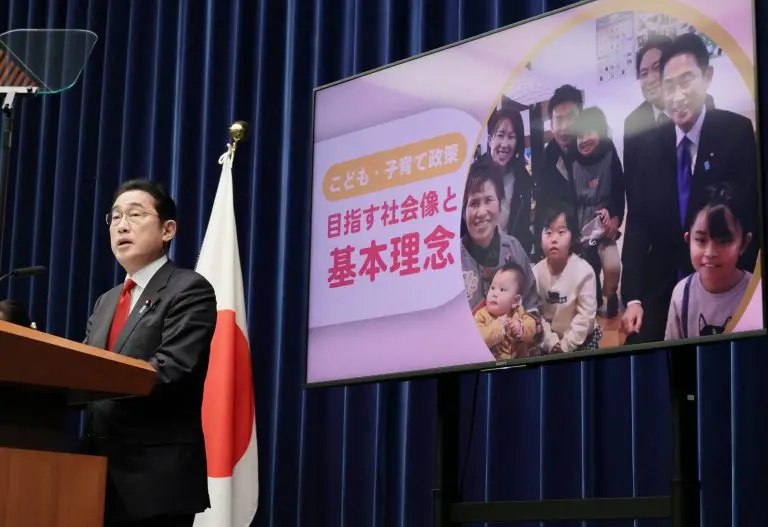[동아시아포럼] 日 가족법 개정, 아동 복지 최우선으로 고려
日 법무성, 이혼가정 아동과 관련한 민법 개정안 발표 공동친권, 양육비, 면접교섭권 등 관련조항 신설·개정 이혼가정 문제와 관련해 '아동 이익 최우선 원칙' 강조
[동아시아포럼]은 EAST ASIA FORUM에서 전하는 동아시아 정책 동향을 담았습니다. EAST ASIA FORUM은 오스트레일리아 국립대학교(Australia National University) 크로퍼드 공공정책대학(Crawford School of Public Policy) 산하의 공공정책과 관련된 정치, 경제, 비즈니스, 법률, 안보, 국제관계에 대한 연구·분석 플랫폼입니다. 저희 폴리시코리아(The Policy Korea)와 영어 원문 공개 조건으로 콘텐츠 제휴가 진행 중입니다.
지난 8월 29일 일본 법무성은 법제심의위원회를 열고 이혼 후 공동친권 등과 관련해 민법 개정을 추진하겠다고 밝혔다. 앞서 일본 국회는 지난 2021년 3월 국회 가족법 소위원회를 출범하고 이혼가정 아동의 복지에 대한 문제를 논의한 바 있다. 주로 친권, 입양, 재산 분배 등과 관련해 ‘아동 이익 최우선의 원칙’을 어떻게 적용할 것인지에 대한 사안으로, 정부가 민법 개정을 추진하기로 하면서 국회 소위원회의 논의에도 관심이 쏠리고 있다.

민법 제818조에 따라 이혼 부모에 단독친권 부여
1898년 메이지 정부가 최초로 제정한 민법에서는 결혼 여부와 상관없이 아버지에게만 친권을 부여하도록 했다. 하지만 종전 이후 가부장적 인습에 대한 문제의식이 제기되자 1947년 민법 제818조를 개정해 이혼 후 부모 중 한 명에게만 친권을 부여했다. 그럼에도 이혼 부모의 면접교섭권, 양육비 등과 관련한 문제가 개선되지 않았고, 이에 2012년 일본 정부는 민법 제766조 개정을 통해 ‘아동 이익 최우선의 원칙’을 명시했다. 해당 원칙은 1989년 유엔아동권리협약이 제시한 네 가지 원칙 중 하나로 아동과 관련된 모든 활동과 결정에 있어 아동에 대한 최상의 이익을 최우선으로 고려해야 함을 강조한다.
그러나 2012년 법 개정 이후에도 이혼가정 아동의 상황은 나아지지 않았다. 지난해 일본 후생노동성의 조사에 따르면 어머니와 살고 있는 한부모가정 아동 중 정기적으로 아버지를 만나는 아동은 30.1%며 아버지로부터 양육비를 받는 아동은 28.1%에 불과한 것으로 집계됐다. 이렇다 보니 부부 3쌍 중 1쌍이 이혼하는 상황에서 단독친권 제도가 이혼 후 법적 분쟁을 유발한다는 목소리가 끊이지 않았다. 여기에 가족의 형태가 다양해지고 여성의 사회 진출과 육아에 대한 남성들의 관심이 높아지면서 70년 이상의 세월이 지난 민법 제818조에 대한 개정 필요성도 함께 제기됐다.
공동친권 도입, 부모 합의하에 선택 가능하도록
올해 8월 민법 개정안을 발표하기 전까지 법무성 내부 논의 과정에서도 이혼부모의 친권과 관련해 이견이 있었던 것으로 알려졌다. 일부 위원들은 일반적으로 어머니에게 친권을 부여하고 있는 상황에서 아버지에게 공동친권을 줄 경우 어머니와 자녀 간의 관계에 부정적 영향을 미칠 수 있다고 우려했다. 여당인 자민당도 지난해 법무성이 발표한 가족법 개정안에 대해 개정의 방향과 원칙이 명확하지 않다고 지적했다.
이에 법무성은 여러 차례 논의 끝에 공동친권에 대한 우려를 수용해 이혼한 부모가 쌍방의 합의 하에 단독친권 내지 공동친권을 선택할 수 있도록 하는 방안을 제시했다. 지난 8월 법무성은 가족법 개정안 발표 당시 “협의이혼의 비중이 90%에 이른다는 점을 고려해 협의이혼의 경우, 부모가 단독친권 혹은 공동친권을 선택할 수 있도록 했다”며 “만약 이혼 후 친권에 대해 합의하지 못할 경우 가정재판소의 조정을 거치게 된다”고 설명했다. 일본 정부는 가족법 개정을 통해 법적으로 이혼가정 아동의 이익을 최우선으로 보호하면서도 이혼 부모들이 법적 분쟁을 하지 않고 조정과 협의를 통해 합리적으로 자녀의 양육방안을 도출할 수 있을 것으로 기대하고 있다.
면접교섭권, 양육비 조항도 신설해 실효성 높여
개정안에는 최근 논란이 되고 있는 면접교섭권 불이행, 양육비 미지급 문제에 대응해 관련 조항을 신설해 이혼부모의 의무를 명확히 했다. 해당 조항은 부모가 면접교섭권과 양육비 지급 의무를 보다 광범위하게 규정함으로써 거주지 이전, 재혼 등 다양한 상황에 융통성 있게 대응하기 위한 조치로 해석된다. 특히 많은 분쟁을 야기했던 양육비 문제에서도 진전이 있었다. 개정안에는 이혼 후 양육비에 대한 합의가 없더라도 일정 금액의 최저 양육비를 청구할 수 있도록 하고, 정해진 양육비를 지급하지 않을 경우 월급이나 재산에 대한 차압권을 인정하는 방안도 포함돼 있다.
이번 개정안은 이혼가정이 직면한 문제를 아동의 이익과 연동해 사회적 합의를 모색하고 있다는 점에서 의미가 있다. 특히 면접교섭권이나 양육비 관련한 이슈를 단순히 이혼가정의 문제로 보기보다는 민법에 규정된 아동 인권과 복지 차원에서 접근했다는 점에서 높은 평가를 받고 있다. 사회적 현실에 맞게 70년이 지난 가족법을 개정한다는 점에서 국민들의 호응도 긍정적이다. 다만 가족법 개정안이 오늘날의 일본 사회에 제대로 적용되기 위해서는 부모와 자녀 관계에 대한 사회적 인식, 재혼 등으로 인한 가족 구성원의 변화, 국제 이주 등 다양한 상황에서도 아동의 이익을 보장할 수 있도록 유연하게 적용돼야 하는 만큼, 정부는 법 개정을 추진함과 동시에 아동 인권과 복지 관련해 보다 포괄적이고 실효성 있는 정책을 마련하기 위해 노력하고 있다. 일본 법무성은 개정안 발표 당시 이 같은 내용을 정리해 올해 안에 시행하는 것을 목표로 하고 있다고 밝혔다.
원문의 저자는 타케시 하마노(Takeshi Hamano) 기타큐슈대학교(University of Kitakyushu) 사회학과 교수입니다.

Child welfare at the forefront of Japanese family law reform
Japan took another step towards family law reform on 29 August 2023 when a Ministry of Justice subcommittee published an outline recommending several changes to decades-old civil codes.

The Family Law Subcommittee of the Legislative Council was formed in March 2021 and has debated issues related to the interest of children after divorce, such as parental authority, adoption and the distribution of property. While it has met dozens of times before, the group’s August meeting garnered significant attention in Japan because of proposed changes to Article 818 in Japan’s Civil Code.
The Meiji government introduced Japan’s first Civil Code in 1898, granting parental authority exclusively to fathers regardless of marital status. Tokyo’s post-war government removed the patriarchal requirement in 1947 with Article 818, which states that custody is granted to only one parent after a divorce.
But this offered few remedies for children who lacked regular contact with their parents or faced issues related to child support payments. Policymakers sought to rectify this in 2012 with an amendment to Article 766(1) of the Civil Code, stating that the child’s interests must be given the highest priority in the consideration of these issues.
But it appears this change has done little to help Japanese children. For example, according to a national survey of single-parent households by the Japanese Ministry of Health, Labour and Welfare in 2022, only 30.1 per cent of children living with their mothers saw their fathers regularly and just 28.1 per cent received child support.
Today there is growing social concern in Japan for the welfare of children living in divorced households. Starting in August 2022, when the family law subcommittee released an interim draft for public comment, the ruling Liberal Democratic Party was concerned about the lack of clarity on the key principles of family law reform.
A key point of disagreement between subcommittee members was how or whether to grant shared custody after a divorce. Some insisted there was real risk in doing so, arguing that compulsory arrangements are likely to be harmful to mothers and children. Others were unconvinced, leading the subcommittee to present two different options in an earlier proposal — allowing parents to choose either sole or joint parental authority.
Public comments were sought between December 2022 and February 2023 based on the second interim draft. The August 2023 outline for custodial reform is as follows — in cases of divorce by mutual consent, which accounts for approximately 90 per cent of divorces in Japan, couples can choose between joint or sole custody.
When two parents cannot agree on an arrangement, Japan’s Family Court can adjudicate. This same court receives and handles the legal proceedings for the divorce as well.
The proposal reflects a desire to update the Civil Code to enshrine legal protections for a child or children’s best interest after divorce while encouraging parents to reach an acceptable co-parenting arrangement rather than an extensive legal fight.
The latest subcommittee proposal also clarifies new rules for parental visitation and child support, allowing for a broader scope of acceptable conditions under which one or more parents may fulfil these requirements. This is intended to deal with the lack of any means to facilitate agreed visitations and the high rate of neglect of child support payments, suggesting both need to be legally reviewed in the future.
This issue extends beyond the scope of Japanese families and reflects a contemporary challenge for the Japanese Civil Code as it grapples with the legacy of normative family ideals. A more effective code should emphasise the interests of children in changing parent–child relationships due to remarriage or a new life with stepfamilies, as well as cross-border families.
Growing social debate on the merits of legal reform towards these ends suggests growing awareness from Japanese policymakers and the public alike that specific legal norms must be linked to broader and more effective policies.
The family law subcommittee and its proposed changes to custody, visitation and child support signal a recognition of changing family dynamics. While no reforms have been codified into law yet, they have triggered a broader conversation about the evolving needs and challenges families, and especially children, face in Japan.




![[동아시아포럼] FDI 유치에도 베트남 실질 성장이 낮은 이유](https://pabii.com/wp-content/uploads/sites/2/2023/11/기사-이미지.jpg)
![[동아시아포럼] ‘트럼프 2.0’에 대응해 세계 무역을 수호하는 전략](https://pabii.com/wp-content/uploads/sites/2/2024/02/trump_EAF_20240226-768x512.jpg)
![[동아시아포럼] 중국이 부동산 산업 지원 정책을 지속하는 이유](https://pabii.com/wp-content/uploads/sites/2/2023/11/EAST-ASIA-FORUM-1.jpg)
![[동아시아포럼] 2023 퍼시픽게임, 솔로몬제도의 지정학적 중요성 대두](https://pabii.com/wp-content/uploads/sites/2/2023/12/Geopolitics-abound-at-the-2023-Pacific-Games-in-Solomon-Islands.webp)
![[동아시아포럼] 일본, 외국인 노동자와의 관계 다시 생각해야](https://pabii.com/wp-content/uploads/sites/2/2023/06/외노자_동아포_20230602.jpg)
![[동아시아포럼] 막대한 채권 보유한 중국, 부채함정 가능성 제기](https://pabii.com/wp-content/uploads/sites/2/2023/11/기사-7.jpg)









